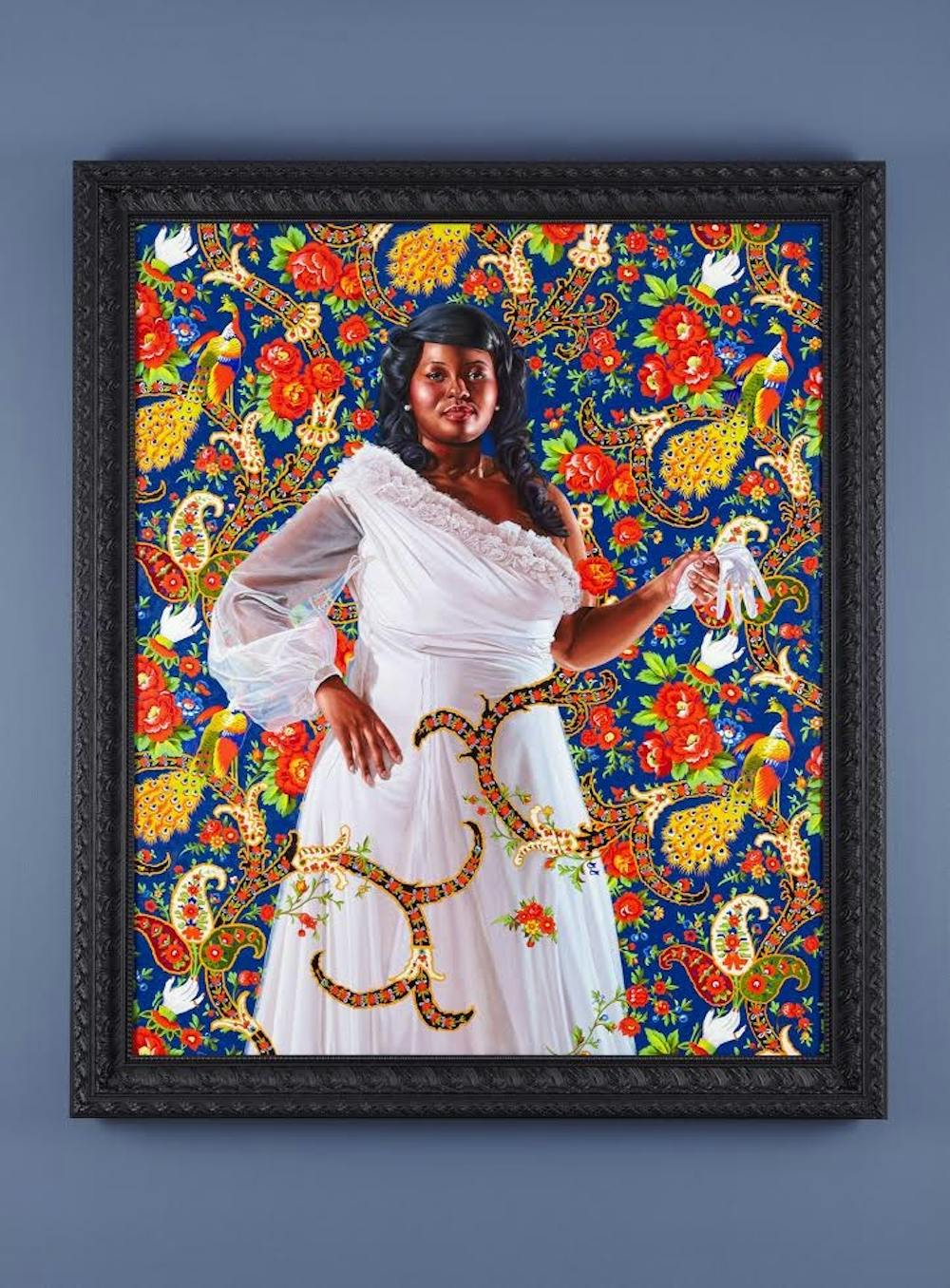Kehinde Wiley’s oil painting “Ena Johnson” hangs prominently in the Grunwald Gallery of Art. It depicts an African American woman standing in a delicate white dress over a bright and intricate background. She holds one white glove in her left hand.
She is serene, she is elegant and to Wiley, she is beautiful.
The Grunwald Gallery kicked off its fall calendar Friday with its opening ceremony for the exhibition “Framing Beauty.” The collaborative exhibition features 20 contemporary artists and their interpretations of how society frames the concept of beauty.
Guest curated by Professor Deborah Willis, Chair of Photography and Imaging at NYU, the gallery includes photography and video, sculptural installations and multimedia presentations.
“It’s nice to see a show featuring such a wide variety of media,” gallery social media coordinator Erik Probst said. “Even the ideas stem from conceptual to narrative, and political to cultural.”
An artist in her own right, Willis has created photographs and writing about the topic of visual culture for over 25 years.
Her 2009 book, “Posing Beauty: African American Images from the 1890s to the Present,” takes a look at how the media perceives African American beauty throughout time. “Framing Beauty” expands on this idea, she said.
“I wanted to have a broader discussion about beauty because it’s met with so many various implications,” Willis said. “Especially with women’s bodies or black bodies, so I thought this was really important to do.”
The gallery’s installations vary from photos of muscle cars to performance videos of drag queens. An antique French parlor chair is suspended from the ceiling in a sculpture called “Jezebel’s Ch(I)air.”
Some of the pieces took a darker look at cultural ideas of beauty.
Photos of young South Korean women show them bruised and bandaged as they recover from various plastic surgeries.
Zoe Buckman’s installation “Every Curve” shows hanging vintage lingerie with embroidered messages like “I swear I’ll never call you bitch again,” and “do we hate our women?”
The exhibition is one of the first events for the fall Themester, whose topic is beauty. An initiative started by the College of Arts and Sciences, this year’s Themester aims to change how we perceive beauty as a central idea of the human experience, according to the Themester website.
The exhibition will remain public through Oct. 6, with a special symposium Sept. 8 featuring a panel of participating artists and led by Willis.
Willis said the exhibition could be particularly beneficial to college students, especially young women. Since young adults have reached a point where they can think critically about how society influenced their upbringing, they can start to analyze how they perceive their bodies, she said.
“Beauty cannot be defined by one person, or one culture,” Willis said. “It’s important to think about how beauty is perceived broadly, and that’s what I’m hoping people will take away from it — the storytelling aspect of beauty.”






